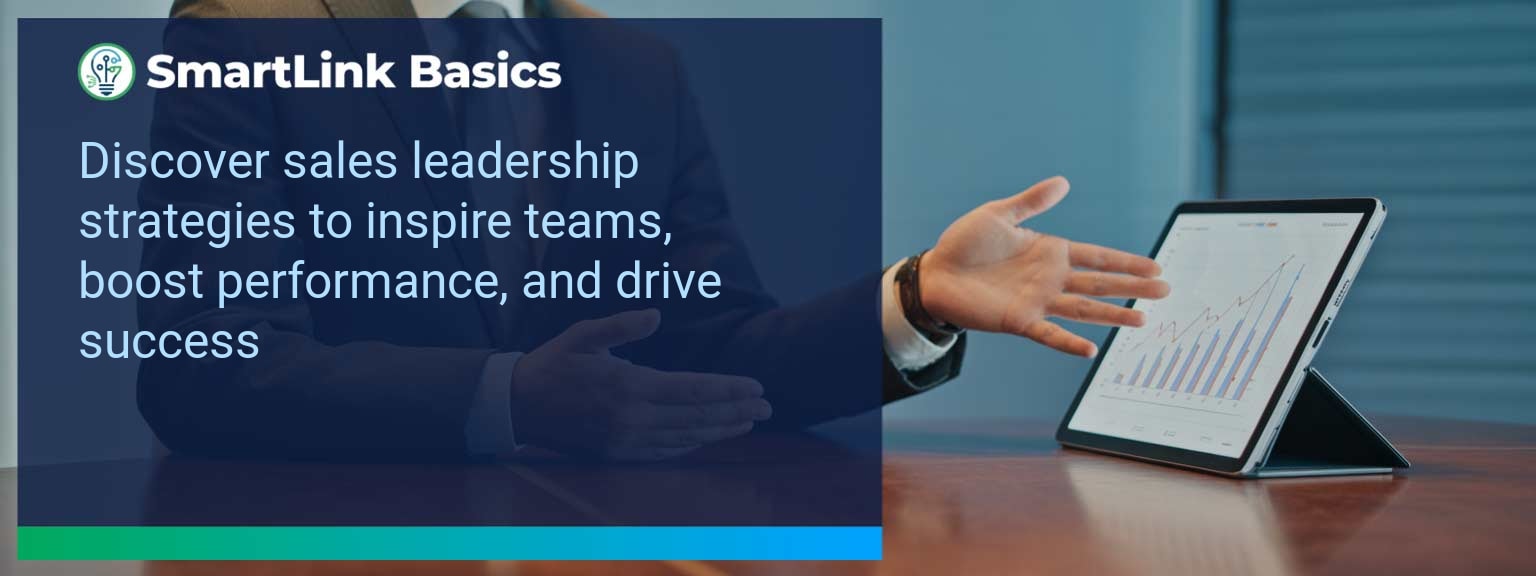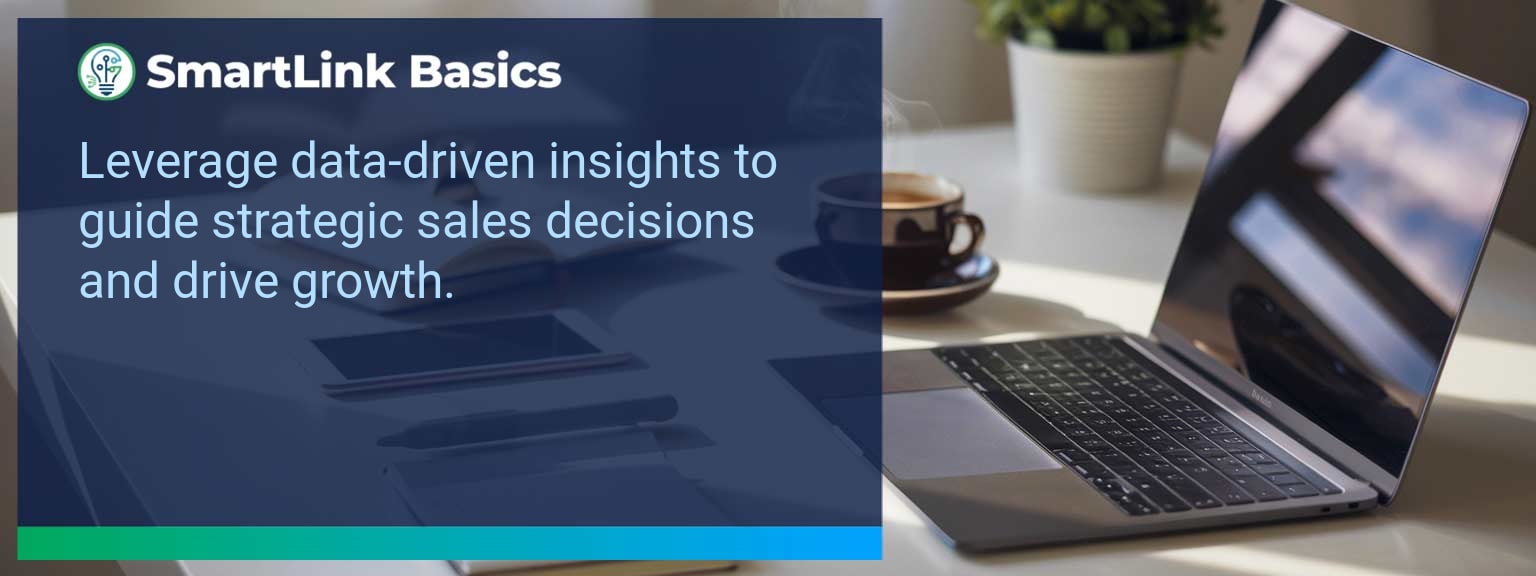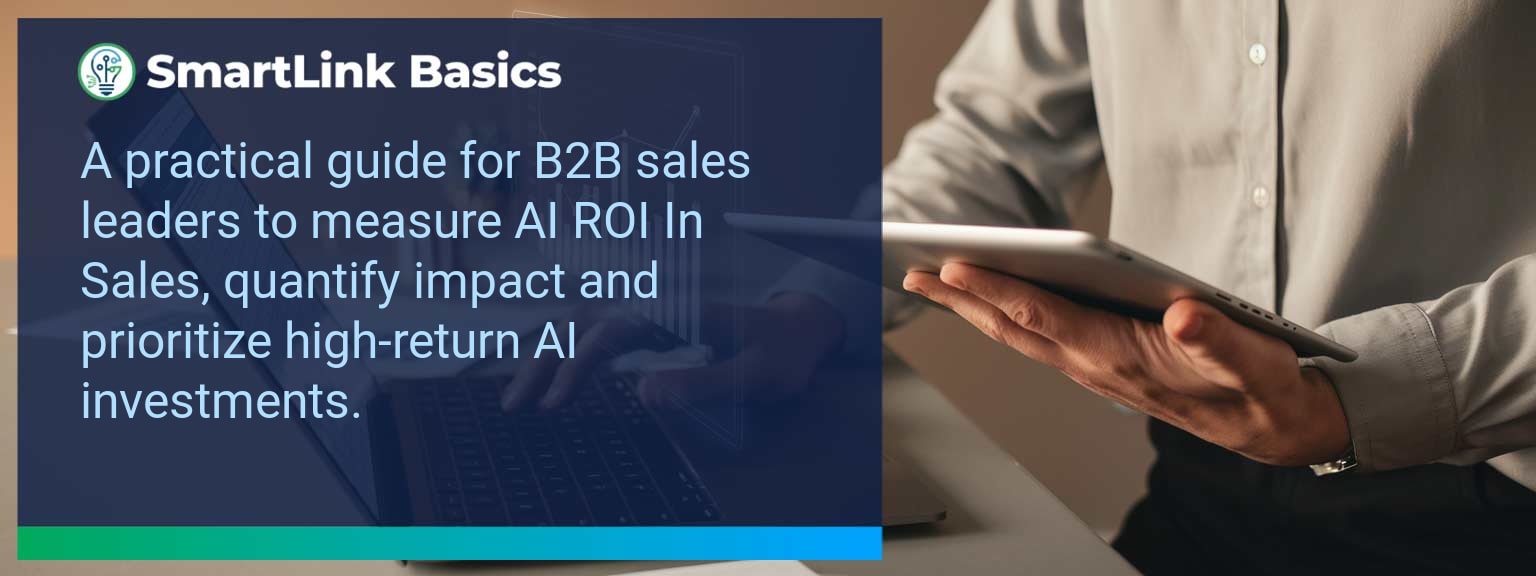Industry data shows that organizations adopting AI-driven automation achieve cost reductions of up to 30% while accelerating sales cycles by 20% or more (McKinsey, 2024). For sales leaders, AI automated workflows now define competitive advantage, enabling teams to reallocate time from repetitive tasks to high-value engagements. At SmartLink Basics, we help decision-makers implement these systems strategically, ensuring they integrate with existing revenue operations. In this article, you’ll see how AI automated workflows power business outcomes, the common obstacles that slow adoption, and practical steps to optimize processes. You’ll walk away with proven examples, a 90-day action blueprint, and measurable KPIs to track results.
- Automate repetitive administrative and CRM updates with AI.
- Integrate machine learning to personalize outreach at scale.
- Streamline approvals, quotes, and contract workflows for speed.
- Use predictive analytics to prioritize sales opportunities.
- Track adoption and performance with targeted metrics.
AI Automated Workflows: What Changed and Why It Matters
AI adoption has shifted from experimental to operational, making automated workflows a standard in high-performing sales organizations. The real advantage lies in combining workflow automation with artificial intelligence workflows to optimize every step of the revenue process. Sales leaders now use AI to synchronize touchpoints, reduce manual inputs, and ensure faster execution. For example, a B2B SaaS leader introduced automated lead enrichment and routing, cutting qualification time by 60%. Actionable insight: Audit processes for time-intensive handoffs and apply AI where repeatability is high.Redesign the Revenue Operating System With AI Automated Workflows
ICP, Segmentation, and Targeting AI-enabled segmentation uses historical wins, firmographic, and behavioral data to dynamically update ICP profiles. This ensures targeting precision without quarterly re-work. Pipeline Architecture Automated workflows push opportunities through the right stages based on engagement signals. AI flags at-risk deals for intervention. Plays and Messaging Integrated automation tools deliver personalized sequences based on buyer activity, increasing relevance at every touchpoint. Operating Cadence AI schedules follow-ups, forecast calls, and account reviews based on actual pipeline movement rather than static calendars. Actionable insight: Implement automation that adapts in real-time to both internal and buyer-driven events.Common Obstacles To Achieving Seamless Automation
The most frequent challenges are fragmented systems, inconsistent data quality, and cultural resistance. Without a unified data layer, automation amplifies errors rather than solving them. Coca-Cola Europacific Partners reported needing a full data governance upgrade before AI could improve sales workflows. Leaders must first assess infrastructure readiness and train teams to trust AI-influenced recommendations. Actionable insight: Before deployment, establish clean data practices and a single source of truth.Implementing AI To Optimize Workflows
Effective deployment of AI process optimization starts with mapping current-state processes, identifying friction points, and matching them with automation tools. For example, automating proposal generation based on CRM opportunity data can reduce turnaround from three days to one hour. Solutions combining business process automation platforms with machine learning integration enable continuous performance improvement. Actionable insight: Pilot in one high-impact stage, measure, and then expand.Tangible Benefits From Automated Processes
The benefits extend beyond time savings — sales leaders gain a scalable system. Tangible outcomes include faster quote-to-close, higher lead conversion, and better forecast accuracy. A manufacturing firm implemented AI-assisted order processing and cut errors by 40%, improving on-time delivery rates. Actionable insight: Track both speed and accuracy to measure workflow automation effectiveness.Metrics That Matter
| Category | Metric | Definition | Target |
|---|---|---|---|
| Leading | Workflow Completion Rate | % of automated sequences executed without manual intervention | 95%+ |
| Leading | AI Suggestion Adoption Rate | % of AI-generated action recommendations executed by reps | 80%+ |
| Lagging | Cycle Time Reduction | Decrease in time from lead entry to closed-won | 20%+ |
| Lagging | Revenue Per Rep | Average sales revenue generated per sales rep per quarter | +15% YoY |
| Quality | Automation Error Rate | % of workflows that trigger incorrect outcomes | <1% |
| Quality | Customer Satisfaction Post-Automation | Average CSAT score after automation implementation | ≥ 4.5/5 |
Innovations And Next Steps For AI Automation
Emerging capabilities like AI-generated playbooks, intent-driven dynamic routing, and integrated AR for virtual product demos are shaping the next wave of sales automation. Companies integrating these tools early will outpace competitors in speed and personalization. Actionable insight: Stay ahead by testing emerging automation features quarterly and aligning them with evolving buyer expectations.Get the 90-day plan, coaching rubric, and dashboard template to operationalize AI in your enablement program.
Turning AI Automation Into a Revenue Multiplier
AI automated workflows are now a strategic lever for predictable, scalable growth. This guide outlined current applications, adoption challenges, a 90-day execution plan, and measurable success criteria. To make automation pay off, sales leaders should integrate tools into one cohesive operating system and review results monthly for continuous improvement. Access more AI-driven sales enablement resources from SmartLink Basics to design a high-performance automation strategy. Strong sales leaders use performance data not as a scoreboard, but as a blueprint for consistent growth. At SmartLink Basics, we help leaders translate raw metrics into actionable insights that strengthen team capability and improve revenue outcomes. In a competitive market, strategic leadership in sales is the difference between hitting quota and surpassing it. This post outlines field-tested sales leadership strategies to motivate your sales team, improve sales performance, and establish measurable growth benchmarks. You will gain a structured framework you can implement immediately to elevate execution, increase motivation, and drive sustainable results.- Leverage performance data to create targeted coaching plans
- Align team goals with specific business growth targets
- Refine sales processes to eliminate low-impact activities
- Build a feedback-driven sales culture to sustain progress
- Track leading, lagging, and quality metrics consistently
Understanding Common Sales Team Struggles
Even high-performing sales units face recurring challenges: inconsistent pipeline quality, low win rates in certain segments, and uneven adoption of best practices. These issues often stem from unclear expectations, misaligned incentives, and inadequate use of data. Without targeted leadership intervention, these gaps compound over time. For example, if a sales rep repeatedly fails to convert late-stage opportunities, it may be due to inadequate negotiation support or unrefined deal-closing tactics. Addressing these patterns requires a strategy that blends performance metrics with tailored coaching. Actionable insight: Audit current workflows quarterly to identify top bottlenecks, then set data-backed improvement targets for each.Applying Leadership Strategies To Drive Improvement
Effective sales leadership strategies begin with clarity: every team member must understand targets, expectations, and the path to achieving them. High-functioning leaders set structured coaching rhythms, use objective data for performance reviews, and ensure that every action ties back to strategic revenue goals. Example: A sales manager reviews each rep’s pipeline health score weekly, assigning micro-targets to address weaknesses in deal progression. This turns data into a coaching tool, not merely a reporting function. Actionable insight: Use a shared dashboard to track individual and team metrics, ensuring accountability and transparency without micromanaging.Measuring Success And Team Growth
Tracking the right metrics is essential for continuous improvement in sales leadership strategies. Leading indicators, like call-to-meeting conversion rate, predict future results. Lagging indicators, like closed revenue, confirm outcomes. Quality metrics, like customer satisfaction scores, measure long-term success. Example: A team targeting enterprise accounts might focus on increasing discovery meeting quality scores from 75% to 85% as a leading indicator of deal success. Actionable insight: Use at least one leading, one lagging, and one quality metric per goal for balanced performance tracking.| Category | Metric | Definition | Target |
|---|---|---|---|
| Leading | Meeting Conversion Rate | Percentage of calls resulting in booked meetings | >40% |
| Lagging | Closed Revenue | Total sales closed within period | $2M per quarter |
| Quality | Customer Satisfaction Score | Post-sale feedback rating | >8/10 |
Building A Culture Of Continued Excellence
Long-term success comes from embedding high-performance habits into daily operations. This includes recognizing achievements, reinforcing skill development, and consistently linking individual performance to team success. Example: A quarterly “data-to-action” review meeting where top performers share their strategies reinforces accountability and collective learning. Actionable insight: Document successful plays and circulate them internally so best practices survive turnover and scale with the team.Get the 90-day plan, coaching rubric, and dashboard template to operationalize AI in your enablement program.









